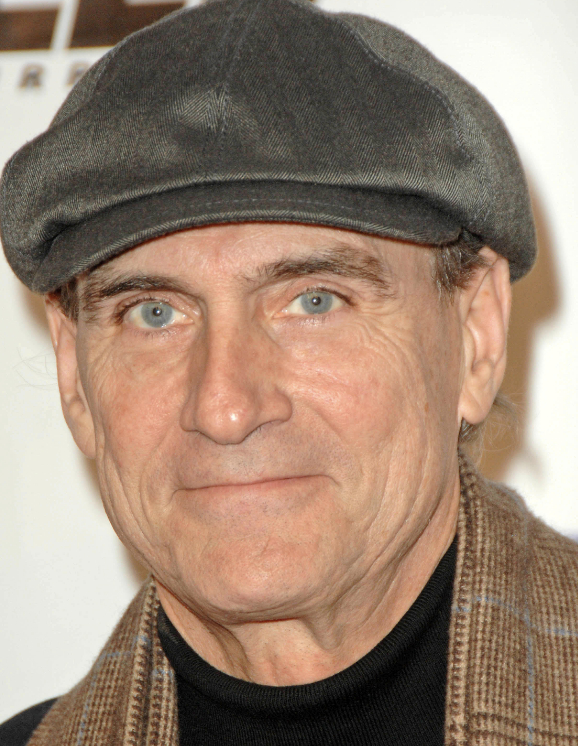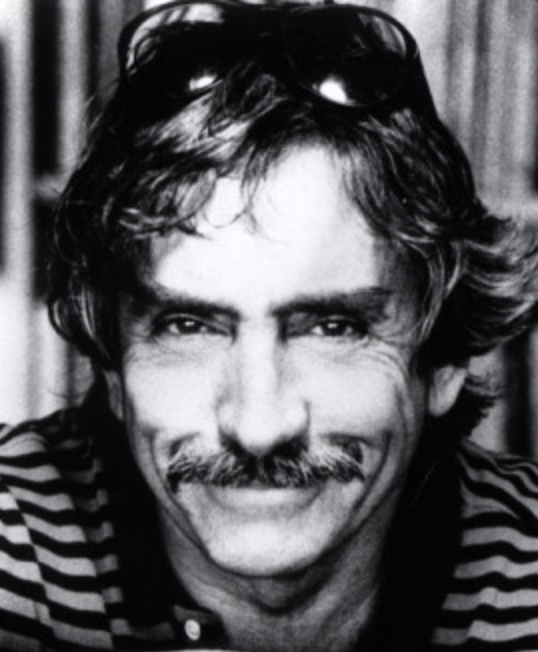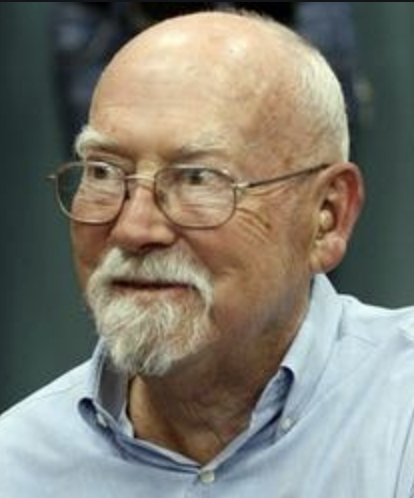March 12
James Taylor

On this date in 1948, musician James Vernon Taylor was born in Boston, then grew up in Chapel Hill, N.C. He first took up the guitar while at Milton Academy, a boarding school in Massachusetts. He began writing songs during an early bout with depression in 1965 and became addicted to heroin, a habit he had kicked by the mid-1970s.
Taylor’s breakthrough album was Sweet Baby James (1970) and his best-known song was “Fire and Rain,” which stayed in the Top 10 from 1970-72. “You’ve Got a Friend” (1971), written by Carole King, was his first No. 1 hit. Rolling Stone magazine has called Taylor “the archetypal ‘sensitive’ singer/songwriter of the seventies” and The New York Times dubbed him “a Troubadour from the 70s.”
Every album he released from 1977 to 2007 sold over 1 million copies. He enjoyed a resurgence during the late 1990s and 2000s, when he recorded some of his most-awarded work, including “Hourglass,” “October Road” and “Covers.” He achieved his first No. 1 album in the U.S. in 2015 with “Before This World,” his 17th studio recording. “Hourglass” (1997), contains “spirituals for agnostics,” Taylor has said. The song “Up From Your Life” begins “God’s not at home.”
Taylor has done benefits for numerous charitable causes. He wrote some of the songs for the Broadway musical “Working” based on the work of Studs Terkel, and appeared as a truck driver in the PBS version of the play.
He was married to singer Carly Simon from 1972-83 and had a daughter, Sally, and a son, Ben, with her. He married Kathryn Walker in 1985 and divorced in 1995. In 2001 he married Caroline “Kim” Smedvig, director of marketing for the Boston Symphony. That same year they had twin sons, Henry and Rufus, born via surrogate.
“My father was an atheist, as distinguished from an agnostic. He felt that anyone who suggested that they represented God was to be deeply distrusted, that anyone who opened his mouth saying that he represented anything divine was a charlatan,” Taylor told music journalist Paul Zollo in a 2009 interview. Asked if he shared that feeling, Taylor said, “Sure, that’s what I was given as a set of beliefs from my father.”
PHOTO: Taylor at Carnegie Hall in 2011; Joella Marano photo under CC 2.0.
“I think God is the name of a question. God is not an existing thing. That’s what we’ve named an unknown.”
ROLLING STONE: Does not having faith in a personal god make it harder to stick with a 12-step recovery program?
—Bluerailroad interview (July 5, 2009); Rolling Stone interview (June 24, 1997)
TAYLOR: Twelve-step programs say an interesting thing; Either you have a god, or you are God and you don’t want the job.
Edward Albee

On this date in 1928, playwright Edward Franklin Albee III was born to Louise Harvey in the District of Columbia and grew up in Larchmont, N.Y., after being given up for adoption when he was 18 days old. His adoptive family was prosperous and owned a chain of theaters. A rebellious teen growing up in a conservative household, Albee was expelled from Trinity College in Hartford, Conn., because he failed to attend chapel and classes.
At 20 he moved to New York’s Greenwich Village, where he took odd jobs, such as being a messenger for Western Union, while writing. His first breakthrough play “The Zoo Story” (1959), belonging to the theater of the absurd, was originally produced in Germany.
Albee was awarded three Pulitzer Prizes for his plays “A Delicate Balance” (1966), “Seascape” (1975) and “Three Tall Women” (1994). He won the 1963 Tony Award for Best Play for “Who’s Afraid of Virginia Woolf?” It opened on Broadway with Uta Hagen and Arthur Hill as Martha and George and was adapted for the 1966 film starring Elizabeth Taylor and Richard Burton. He won a second Best Play Tony in 2002 for “The Goat, or Who Is Sylvia?”
He told Warren Allen Smith, editor of Who’s Who in Hell (2000), that he was a “nominal Quaker” because he admired their pacifism, and that while he thinks Jesus lived and is interested in his outlook, he did not accept “all that divinity stuff.” (Dec. 10, 1996)
In his 2011 acceptance speech for the Lambda Literary Foundation’s Pioneer Award for Lifetime Achievement, Albee said: “A writer who happens to be gay or lesbian must be able to transcend self. I am not a gay writer. I am a writer who happens to be gay.” His longtime partner, sculptor Jonathan Thomas, died in 2005 from bladder cancer. Albee also had relationships with composer William Flanagan and playwright Terrence McNally during the 1950s and early 1960s. Albee died at his home at age 88 in Montauk, N.Y. (D. 2016)
“The result is a touching, humorous, and honest tribute to a woman who was a pioneer for free-thinking females everywhere, but also stood strongly on her own as one of the 20th century’s greatest artistic minds.”
—From a description of Albee's 2001 play "Occupant" about artist Louise Nevelson (Berkshire On Stage, Oct. 1, 2018)
Harry Harrison

On this date in 1925, author and editor Harry Max Harrison (né Henry Maxwell Dempsey) was born in Stamford, Conn. His mother was a Russian born in Latvia and his father, of Irish descent, was born in New York state. Growing up in New York City, Harrison spent a lot of time alone, excelling in science at school and devouring science fiction books.
At age 13 he was one of the founding members of the Queens chapter of the Science Fiction League. After high school he joined the U.S. Army Air Corps, where high marks on technical aptitude tests secured him training in computers. Discharged in 1946, Harrison enrolled in the Cartoonists and Illustrators School in New York City, where he met many artists who gained prominence in the comic book industry.
Harrison became an exemplary comic book artist himself, designing hundreds of pages of comics and covers over the next few years, including “Worlds Beyond: A Magazine of Science Fiction Fantasy.”
As the “Red Scare” in the 1950s advanced, comic books became a political target, blamed for “corrupting America’s youth.” The comic book boom came to an end, forcing artists like Harrison to take up other trades. Harrison stuck with his childhood love and started writing science fiction. He was one of the main writers of the Flash Gordon comic strip in the 1950s and 1960s. One of his novels, Make Room! Make Room! (1966), was the basis of the sci-fi classic film “Soylent Green” (1973).
Some of his other prominent books (there are dozens) include The Stainless Steel Rat (1961), Bill, the Galactic Hero (1965), The Technicolor Time Machine (1967) and A Rebel in Time (1983). An entry titled “Atheist” linked to his website details how Harrison’s short story “The Streets of Ashkelon” (1962) remained unpublished for over a year because the hero was an atheist who tried to protect the inhabitants of an alien world from the influence of a Christian missionary: “The story was regarded as being too offensive for a Christian readership.”
He married Evelyn Harrison in 1950, divorcing in 1951. He married dress designer and ballet dancer Joan Merkler in 1954. They had two children, Todd and Moira, and were married until her death in 2002. He died in 2012 at age 87 in his apartment in Brighton, England. (D. 2012)
“We atheists lead happy lives, never concerned with the-dying-and-burn forever-in-hell nonsense. We know better. We enjoy happiness with our friends and neighbors and ignore all the greed and rituals that pay the parasite priests. Let them wallow in their medieval superstition while we enjoy all the wonders of our God-free universe.”
—Henry Harrison News blog, "They're Afraid of Us!" (April 23, 2011)
